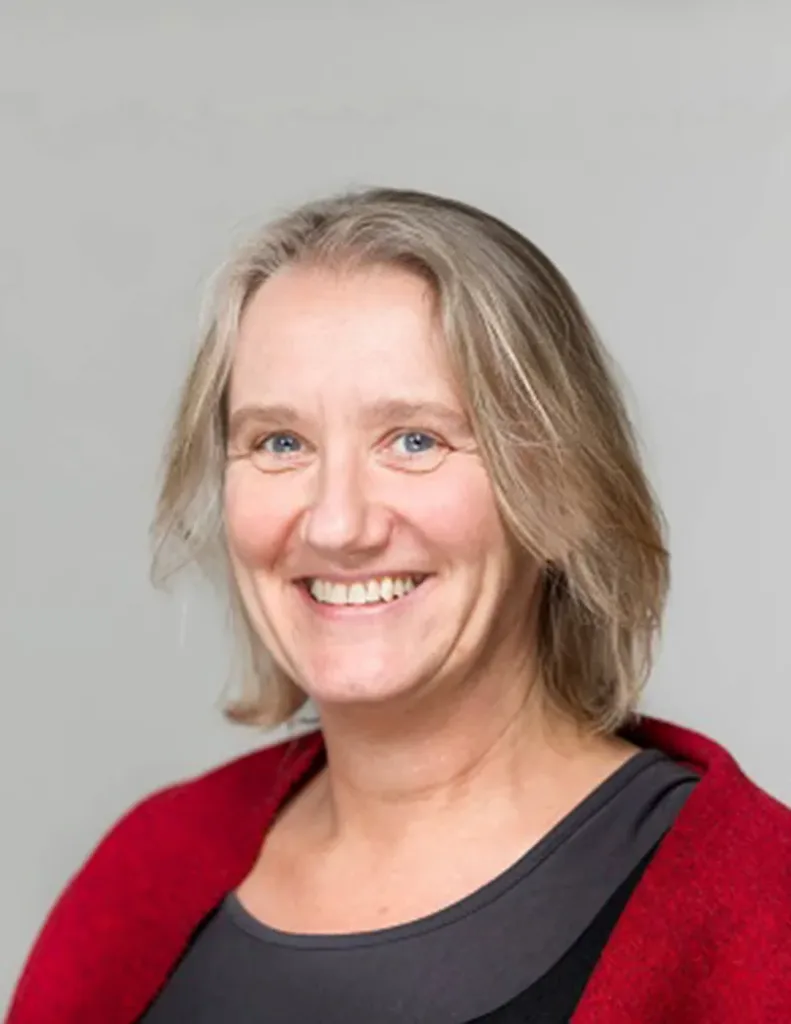
By: Lisbet Christoffersen, PhD
Weaving Tourism and Tradition
Weaving Tourism and Tradition: Indigenous Tourism Experiences in Panama
What role does tourism play in the preservation and dilution of local culture? This question is particularly prescient when considering the impacts of tourism on indigenous cultures. Students had the opportunity explore this question on a site visit to the Ngäbe Buglé town of Soloy in the Ngäbe Comarca, an independently administered indigenous territory, on our trip to Boquete, Panama. This experience highlighted many of the ethical issues raised in our course, Environmental Ethics and Sustainability, particularly when considering presentations of indigeneity in light of Latin America’s colonial history. While tourism is often presented as an idealized tool for sustainable development, it is important to remain cognizant of the continued exploitation of native peoples’ resources and culture facilitated by today’s globalized economy.
A key factor in socially sustainable tourism is the level to which locals control offerings and present narratives. On our visit to the Comarca, Ngäbe demonstrated how fibers from a local agave and dyes are used in the making of woven bags called chakra. We then had a chance to buy bags and other daily use items from local women’s art collectives. The women explained how they select which daily items to make and sell; sacred or healing items are not offered to the public/to tourists.
Indigenous tourism raises another interesting question of whether indigenous Panamanian people feel free to present the dynamic nature of their culture or feel pressured to highlight their “ancient ways” to meet tourists’ expectations. This site visit presented an example of hybrid cultural expression via Ngäbe clothing choices. Indigenous women often wear brightly colored, long dresses with intricate contrasting appliques along the borders. Women presenting to our group about bags and crafts explained that they always wear these dresses on the Comarca because they grew up doing so and feel more comfortable, not to meet tourists’ expectations. When they go to work in town or to local agriculture sites, they wear their dresses or “modern” clothes, usually jeans and t-shirts. They emphasized that they have a choice, like all women, based on a mix of social and practical factors and that they are the ones that create new tradition.
In an effort to vary offerings and share the economic benefit of tourism, we were then taken to another site for a presentation on local foods, their health benefits and cultural significance. The food presentation highlighting local preparation methods and culture was in stark contrast to the fact that Ngäbe and even Panamanian culinary traditions are not readily available to tourists in the town of Boquete. This chance to try four local dishes and two drinks was savored all the more due to this lack, but it also demonstrated how non-indigenous tourism may be more likely to sacrifice local culture to tourists’ presumed preference. While culinary colonization could be a threat to the region, it may be an opportunity for the Ngäbe to present visitors with local traditions. When created and directed by local indigenous groups, tourism can be an important means to draw awareness to a rich culture, provide economic opportunities and enable Ngäbe to control the representation of their own customs.
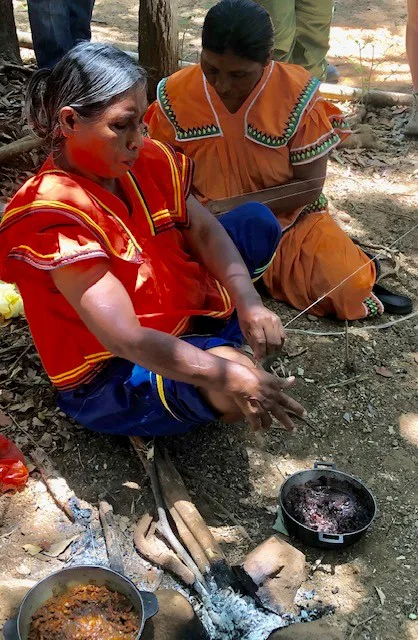
Ngäbe women weaving pita fibers into string to make chakra bags.
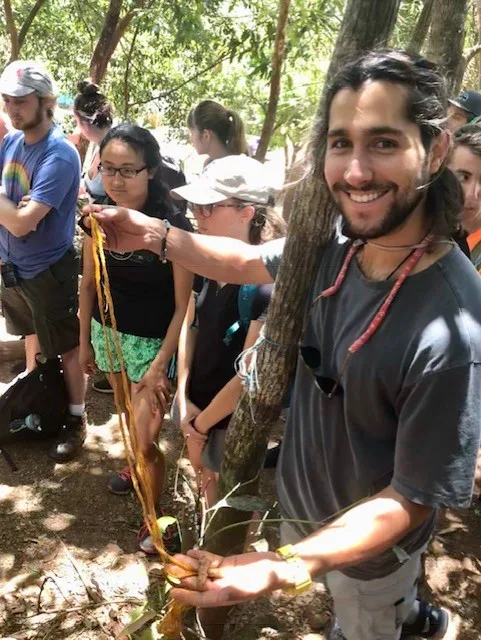
Esteban holding turmeric-dyed string.
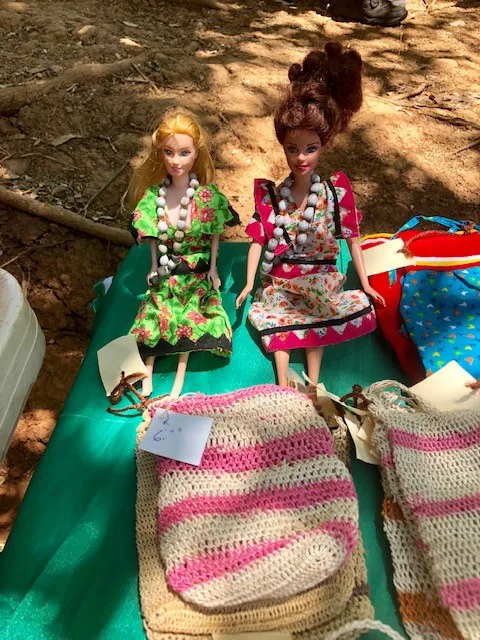
The sale of barbies dressed in Ngabe clothing raises questions of impacts of tourism and western cultural on indigenous culture.
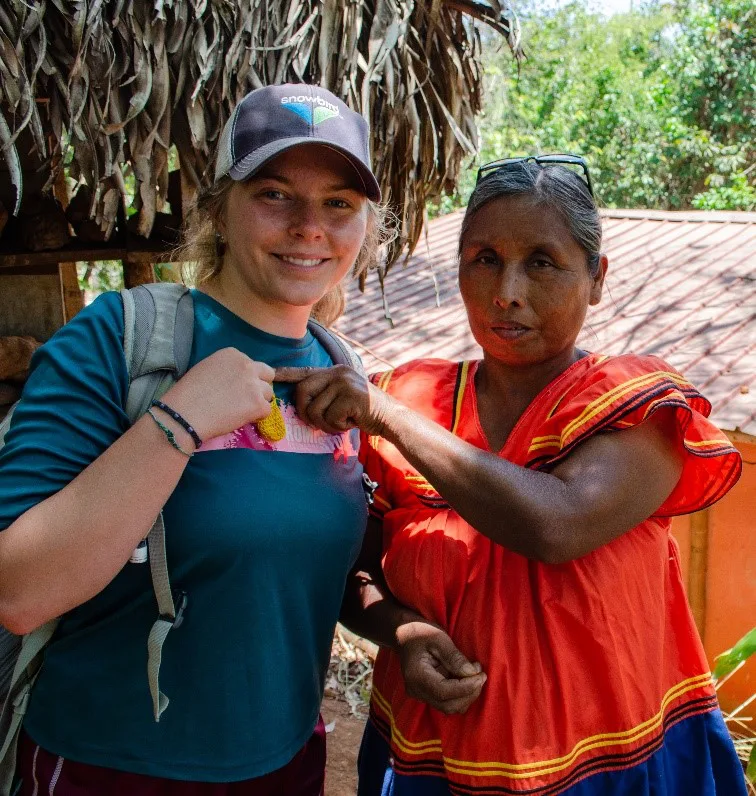
Cici Moreland with the turmeric dyed basket Ngäbe women showed her how to make.
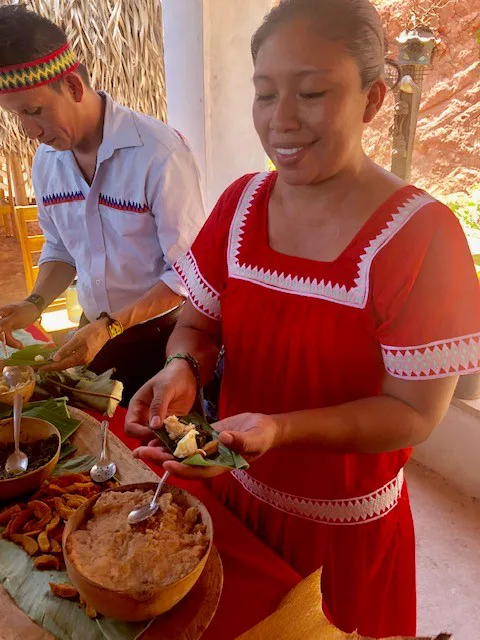
Ngäbe presention on local foods, including palm fruits, bananas and heart of palm.
Related Posts

Camila Rojas: Alumni Spotlight⭐

